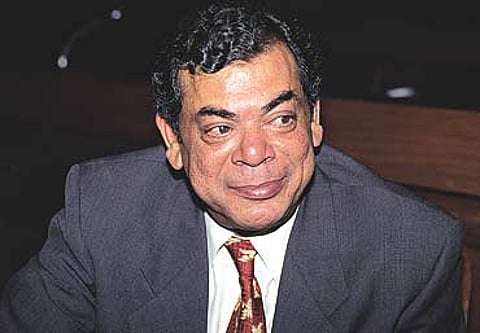A soft-spoken Ratan Tata has turned aggressor in the Corus deal; last week, he disagreed with FM P. Chidambaram at a public forum. Anil Ambani, who maintained that Reliance's CDMA was better than GSM before he parted ways with his elder brother Mukesh, is eyeing Hutch, a GSM player. Essar's Shashi Ruia, who sold out his stake in BPL Mobile and played a minority role in Hutch, is now a serious contender for it. Airtel's Sunil Mittal, who was believed to be a willing seller at the right price, is keen to remain one of the three potential players in the wireless sector. Vodafone's CEO Arun Sarin, who hinted he might increase his 9.9 per cent holding in Airtel, is suddenly energised about taking over the latter's competitor, Hutch.
More importantly, for many of the CEO participants, egos and personal equations seem to be as important as boring business strategies chalked out in corner rooms. Each one is lobbying to pursue—and further—his individual interest and corporate cause. It's a perfect setting for scorching scenes at the two M&A amphitheatres in Mumbai and London.
At the country's financial centre, there's complete chaos. To begin with, no one's sure why the Hong Kong-based Hutchison Whampoa decided to sell its 52 per cent stake in the Indian operation, Hutch Essar. Sources maintained that if any of the big boys sold, it was likely to be Airtel's Mittal, who had diluted his holding in favour of strategic partners like SingTel and Vodafone. Most agreed that Hutch would continue to be one of the three top players, along with Anil Ambani's Reliance Communication and SingTel/Vodafone.
There were several reasons that irked Hutchison owner Li Ka-Shing. The most important was his spat with Indian partner Essar, which owned 33 per cent in Hutch. It began in December 2005, when Egypt's Orascom became a 15 per cent owner in Hutch by buying an over 19 per cent stake in Hutchison's holding firm. This incensed Essar's Ruia, who came to know about the deal after it had become public knowledge. He scuttled it. "Orascom has so far not got the government's nod as we raised security concerns over its links with Pakistan," admit Essar sources.
In fact, the Essar-Orascom animosity is so volatile that an industry source contends that "if there's any possibility of Orascom buying out Hutchison's stake, Essar would rather quit the JV". Thanks to the Orascom episode, security issues were also raised against Hutchison, and Hutch's proposed IPO was postponed and later cancelled. So, when Li Ka-Shing realised he might get a great price, he decided to sell out. At the price being talked about, feels Grant Thornton's Harish H.V., the Hutchison owner will make more money from this deal than what he can earn from his global telecom operations in the next 5-6 years.
Over half-a-dozen suitors queued up to woo the bride with offers that valued Hutch at $21-27 billion. Among the first to initiate discussions with the willing parents-in-law was Reliance's Anil Ambani. A Citigroup report (January 2, 2007) agrees that Reliance would stand to gain the most if it buys Hutch, as the acquisition will make it the market leader (combined share: 38 per cent), enable its proposed entry into the GSM arena, and help the consolidation process in the telecom sector with the top three players controlling 80 per cent of the overall subscriber base.

